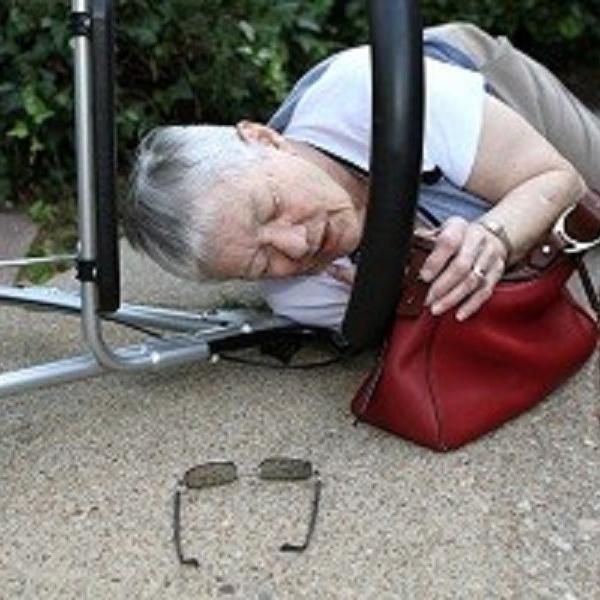
Once or twice in our lives, we can all admit that we’ve lost our balance, or taken an embarrassing fall.
Aside from awkwardness, and the “look-around” to see if anyone witnessed it, you probably experienced that unnerving rush through your body, hoping you survived the fall without any bumps and bruises
. . . or worse.
As we age, however, fall risk and lack of balance can become a serious issue. In fact, according to the Centers for Disease Control, more than one third of Americans 65 and older fall each year.
Facts on Falls for Seniors
- Fall related injury is the 5th leading cause of death in seniors.
- 25% of seniors older than 75 years who sustain a hip fracture die within a year.
- Falls increase with frequency and severity each decade of life. Additionally overall activity level decreases after the first fall.
- Falls are the primary cause of injury in those 55 years and older.
- Falls are the 2nd leading reason for admittance to a nursing home.
Reference: Fall Preventions Clinic of America
“It’s fair to say that most people have a tendency to diminish the severity of their situation after they fall for the first time. They often chalk it up to ‘bad footing or a fluke’. However most people who fall do so because of a change in their physical health,” said Tony Caronia, physical therapist and regional director at ATI Joliet. “Whether it’s caused by pathology (injury, disease) or a normal decrease in conditioning, strength, or vision that come with time, it is vital to see a doctor after the initial incident.”
Factors in Fall Risk
- Vertigo – sensation of room spinning and dizziness.
- Vestibular Dysfunction – one of several medical conditions that can cause loss of balance.
- Muscle weakness and loss of flexibility – as we age, and become less physically active, our muscles and bones lose strength.
- Medical Conditions - vision problems, conditions that cause confusion (Alzheimer’s or dementia) or a stroke can limit your ability to get around safely.
- Medicines – certain medications, or combinations of medicines, can affect alertness and balance.
- Home hazards – loose rugs, poor lighting, general clutter and light cords can pose dangers .
Talk to Your Doctor
Tony stresses that whether an injury is sustained or not, always consider falling a warning sign of a greater problem that needs to be identified and treated. Most people who fall are repeat offenders with the odds of injury increasing over time. Do yourself a favor if you fall, take it seriously, seek medical advice, and treat your condition to improve your overall quality of life after your fall.
How Physical Therapy Can Help
Numerous studies have shown that physical therapy can help improve balance, muscle strength and decrease the risk of falling.
If you or someone you know is at risk for falls, visit any ATI Physical Therapy location for a Complimentary Injury Screening. The trained therapists at ATI will provide a balance assessment and appropriate recommendations for continued care.
